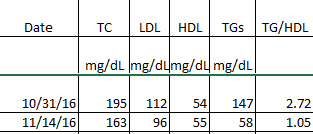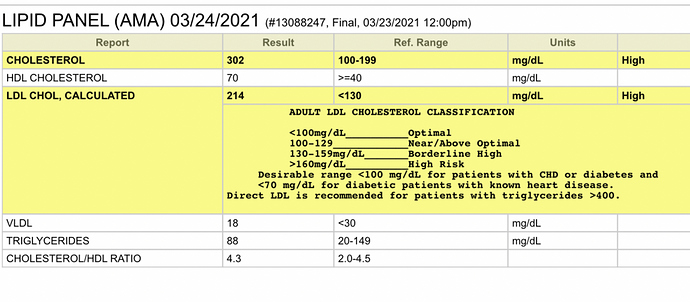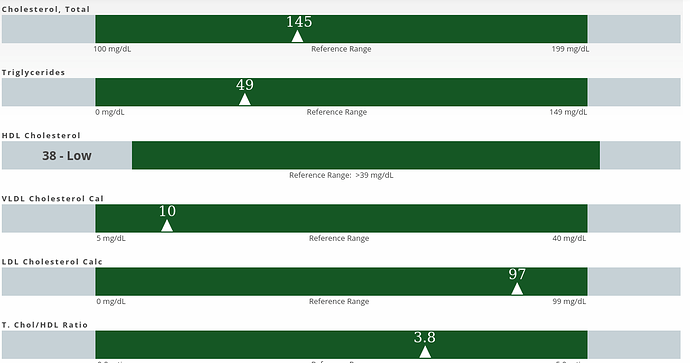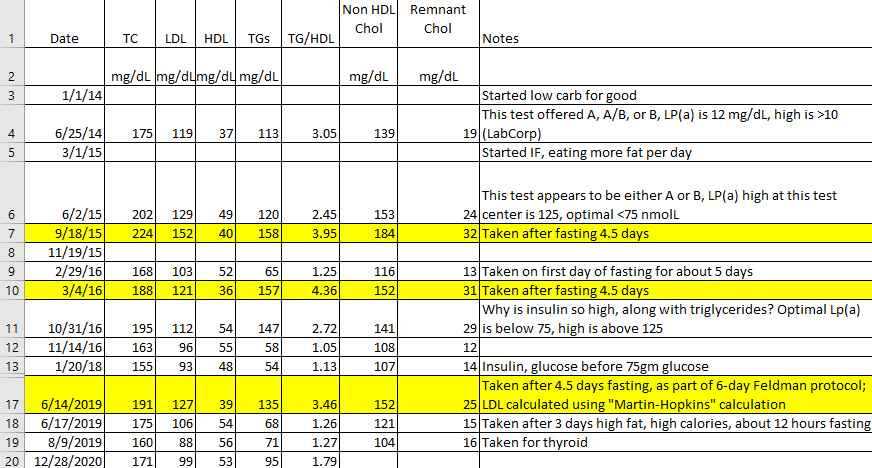@P_Bash Supposedly, a very few people do react to eggs that way. It’s very small percentage of people, though.
But before I believe that’s happening to you, I’d need to see better data. I’d need you to count calories for at least 1 week and not eat eggs, keeping basically the same meals. Get a test at the end of that. Then I’d like for you to eat 6+ eggs a day, same calories, meals exactly the same otherwise. (You’d obviously have to eat less of something to make up the cals for the eggs.) Get a test. Compare.
Ensure you keep exercise, fasting, and anything else the same, as much as you can.
Without that, there are too many variables.
Here’s an example:

Took the test on 10/31/16, and got way higher trigs and fasting insulin (not shown) than I anticipated. Went on vacation to San Francisco, came back and got another test on 11/14/16, about two weeks later. Note the dramatic differences, and for reasons I don’t understand.
I theorize that the high values for this were due to a lot of fasting just recently before this…but then I also got a very high fasting insulin. Which goes against my theory, as insulin goes down when fasting. Though I wonder if there’s a “rebound” effect with insulin? In other words, you fast a lot and get insulin low, but then eat, and that causes high insulin (temporarily)?
Until we have home insulin meters, I’ll never know.




